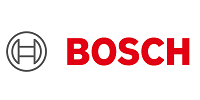Bosch and APCOA to Provide Automated Valet Parking Technology in Parking Garages across Germany
Driverless Parking from Hamburg to Munich

Now that automated valet parking has been approved for commercial use in the P6 parking garage at Stuttgart airport, Bosch and APCOA are branching out and installing the technology in 15 further parking garages in Germany. From Hamburg to Munich, work to expand the infrastructure-based, automated, and driverless SAE Level 4 parking system is set to start in 2023.
As a first step, Bosch and APCOA are planning to make up to four parking spaces per parking garage ready for automated valet parking. "We will expand the number of such parking spaces based on the expected ramp-up of vehicles featuring automated valet parking. Our experience with charge spots for electric vehicles shows us how important it is for infrastructure growth to keep pace with the technology. Together with our partner APCOA, we are now making sure that this will be the case for automated valet parking," says Dr. Markus Heyn, member of the Bosch board of management and chairman of the Mobility Solutions business sector. In the years ahead, Bosch's modular system will allow the number of parking spaces featuring the infrastructure technology to be quickly expanded to up to 200 parking bays at each of the 15 locations.
Start of the Worldwide Market Launch of Automated Valet Parking

The master agreement now signed by Bosch and APCOA is the first step toward a worldwide market launch. The goal is to equip several hundred parking garages across the globe with automated valet parking in the years ahead. "Germany is only the beginning - we're expecting to soon be able to gradually roll out automated valet parking in other countries around the world as well, once the corresponding laws have been passed," says Claudia Barthle, who heads up global software and service sales in the Cross-Domain Computing Solutions division at Bosch and is responsible for the partnership with APCOA. Germany is one of the few countries to have already passed the Level 4 legislation that creates a framework for systems such as automated valet parking. Other countries, such as France, are poised to follow.
"With the automated valet parking solution, we can offer our parking customers a whole new level of convenience. This function is especially advantageous at locations where time is an issue, such as airports, concert halls, event locations, and trade fair locations. In other words, our location at Stuttgart Airport is only the beginning," says Frank van der Sant, a member of the board of management and chief commercial officer of APCOA PARKING Group. Automated valet parking will soon be available in selected parking garages in cities such as Hamburg, Berlin, Cologne, Frankfurt, and Munich. Further parking garages in Europe are set to follow.
Smart Interaction of Infrastructure and Vehicle Technology

Automated valet parking is the wave of the future: gone are the days of time-consuming searches for parking spaces, irksome maneuvering, and the risk of dents and scratches. The driver simply parks the vehicle in a handover zone near the entrance of a parking garage and uses an app to start the highly automated and driverless parking service. The basis for this is Bosch stereo cameras, which not only identify vacant parking spaces but also monitor the driving aisle and its surroundings, and reliably detect obstacles or people in the aisle. If an unexpected obstacle is detected, the vehicle brakes and safely comes to a complete stop. Only once the route is clear does it continue on its way. For this purpose, all the data generated by the cameras are fed into edge computers. Smart algorithms transmit the driving maneuver to be made and thus enable driverless parking - even when moving between stories on narrow ramps. The distinctive feature of this solution is that the smart technology installed in the parking garage keeps the technical requirements in the vehicle to a minimum so that the automated and driverless valet parking service lends itself to all vehicle classes.
Thanks to APCOA's FLOW platform, this service is not only driverless but also ticketless and cashless. Drivers are already using the eponymous app to help lighten the burden of parking. This ranges from making parking reservations to contactless entry into the parking garage - now, conveniently, via license plate recognition - and to fully automated payment, invoicing, and contactless exit. The system recognizes the customer's vehicle or license plate, and the barriers open automatically, making a ticket and trip to the ticket machine redundant. APCOA manages approximately 1.8 million individual parking spaces at over 12,000 locations in 13 European countries. By increasing the availability of driverless and highly automated valet parking services, the same amount of space could accommodate up to 20 percent more vehicles in the future. In addition, driverless parking is especially suitable for narrow, remote, and therefore unattractive parking areas.
World's First Approved Highly Automated Parking System (SAE Level 4)
Automated valet parking has developed by leaps and bounds. In mid-2017, Bosch and Mercedes-Benz presented the solution to the general public as part of a pilot project in the parking garage of the Mercedes-Benz Museum in Stuttgart. Only two years later, the partners obtained the world's first special permit to operate automated valet parking using selected vehicles without a safety driver in the actual traffic conditions found in parking garages. The next milestone came at the end of 2022, when Bosch, Mercedes-Benz, and APCOA made the highly automated and driverless parking service available at Stuttgart airport, where they worked on the Level 4 system's first commercial use. Automated valet parking in the P6 parking garage at Stuttgart airport recently became the world's first highly automated driverless (SAE Level 4) parking function to be given official approval for commercial use in Germany - a world-first for the commercial use of this driverless parking system. This function is available in Germany, initially in the P6 parking garage at Stuttgart airport, for certain S-Class and EQS variants featuring the INTELLIGENT PARK PILOT.
Summary
- Bosch to make driverless parking available in 15 further APCOA parking garages across Germany.
- Gradual, large-scale market launch of the Bosch system is planned in several hundred parking garages worldwide.
- Bosch will initially install the infrastructure technology in four parking spaces per parking garage.
- The APCOA FLOW platform enables contactless and cashless parking without a ticket.
About The Bosch Group
 The Bosch Group is a leading global supplier of technology and services. Its operations are divided into four business sectors: Mobility Solutions, Industrial Technology, Consumer Goods, and Energy and Building Technology. As a leading IoT provider, Bosch offers innovative solutions for smart homes, Industry 4.0, and connected mobility. Bosch is pursuing a vision of mobility that is sustainable, safe, and exciting. It uses its expertise in sensor technology, software, and services, as well as its own IoT cloud, to offer its customers connected, cross-domain solutions from a single source. The Bosch Group’s strategic objective is to facilitate connected living with products and solutions that either contain artificial intelligence (AI) or have been developed or manufactured with its help. Bosch improves the quality of life worldwide with products and services that are innovative and spark enthusiasm. In short, Bosch creates technology that is “Invented for life.”
The Bosch Group is a leading global supplier of technology and services. Its operations are divided into four business sectors: Mobility Solutions, Industrial Technology, Consumer Goods, and Energy and Building Technology. As a leading IoT provider, Bosch offers innovative solutions for smart homes, Industry 4.0, and connected mobility. Bosch is pursuing a vision of mobility that is sustainable, safe, and exciting. It uses its expertise in sensor technology, software, and services, as well as its own IoT cloud, to offer its customers connected, cross-domain solutions from a single source. The Bosch Group’s strategic objective is to facilitate connected living with products and solutions that either contain artificial intelligence (AI) or have been developed or manufactured with its help. Bosch improves the quality of life worldwide with products and services that are innovative and spark enthusiasm. In short, Bosch creates technology that is “Invented for life.”
About APCOA PARKING Group
APCOA PARKING Group is Europe's leading parking operator with 50 years of industry expertise. With its 4,700 employees, the company manages more than 1.7 million individual parking spaces at over 12,000 locations. These parking spaces are all situated in the proximity of 70% of the population of APCOAs 13 countries' organizations. With its consistent "asset-light" business model, APCOA is the trusted partner that maximizes value for private and public real estate owners
Via its open digital platform APCOA FLOW, the company connects on-street and off-street car parks with clients, partners, customers, and their vehicles. Based on this technology, APCOA is transforming its car parks into Urban Hubs, providing the physical and digital infrastructure for mobility, logistics, e-charging, and technology-based services. Customers profit from innovative and convenient experiences provided by APCOA and its partners which use the car parks to deliver their services. The environment also benefits as the company actively contributes to the reduction of emissions in cities by decreasing the volume of traffic for logistics and searching for parking. By connecting parking, mobility, and services for urban life, APCOA is positioned to be an integral part of the digital and physical urban ecosystem.




Comments
There are no comments yet for this item
Join the discussion